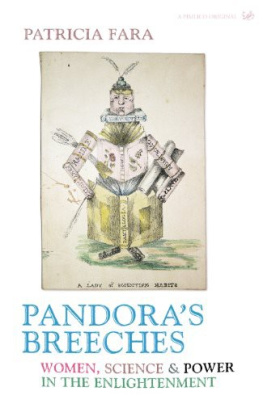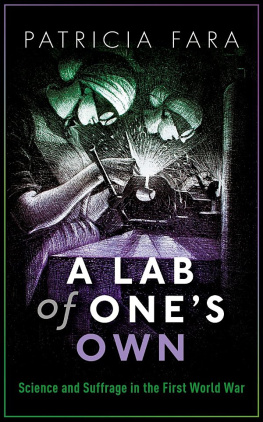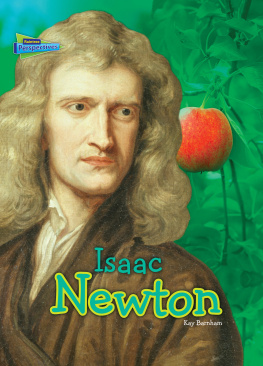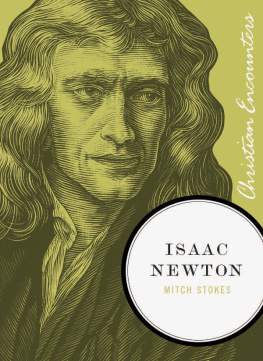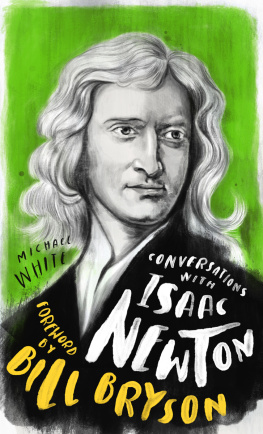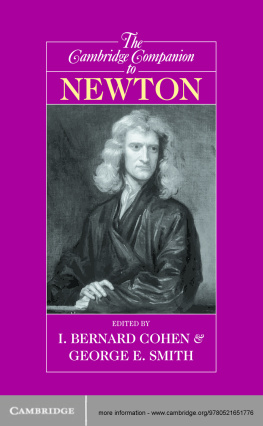Patricia Fara
NEWTON
THE MAKING OF GENIUS
PICADOR
For Michael
List of Illustrations
Every effort has been made to contact copyright holders of material reproduced in this book. If any have been inadvertently overlooked, the publishers will be pleased to make restitution at the earliest opportunity.
Acknowledgements
During the last few years, many people have contributed anecdotes and advice, but I should especially like to thank Anne Secord and Richard Yeo for their detailed critiques of draft chapters, and Jim Secord for his constant interest and advice, which included reading the complete final version. In addition, I am particularly indebted to Simon Schaffer and Judith Zinsser for their encouragement and comments, and I have also benefited from helpful discussions with Gadi Algazi, Malcolm Baker, Ulrike Boskamp, Michle Cohen, Matthew Craske, Gideon Freudenthal, Cole Harrop, Michael Hau, Kilian Heck, Rob Iliffe, Ludmilla Jordanova, Milo Keynes, Nigel Leask, Christine MacLeod, David Money, Wendy Pullan, Steven Shapin, Skuli Sigardsson, Stephen Snobelen, Richard Staley, Ralph Stern, Jonathan Topham, Simon Werrett and Michael Wintroub.
For financial assistance, I wish to thank the Max Planck Institute, the Leverhulme Trust and the Royal Society; and for their assistance during publication, my thanks to my marvellous agent, David Godwin, and to my Macmillan editor, Anya Serota, who made many extremely helpful suggestions. I would never have completed this book without the invaluable support of relatives and friends, to whom I am deeply grateful.
Shortened versions of Chapters 2 and 8 have appeared as: Faces of genius: images of Newton in eighteenth-century England, in Geoffrey Cubitt and Allen Warren (eds), Heroic Reputations and Exemplary Lives (Manchester: Manchester University Press, 2000); and Isaac Newton lived here: sites of memory and scientific heritage, British Journal for the History of Science 33 (2000), 40726.
Preface
Sublime spirit! Vast and profound genius! Divine being! Newton, deign to accept the homage of my feeble talents!... Surely even an idiot uses the same ink as a man of genius?
tienne-Louis Boulle, 1784
Salvador Dals startling surrealist sculpture of Isaac Newton is an elegant abstract figure, its outstretched hand holding a ball on the end of a rope (). Despite its rippling musculature, this polished bronze humanoid has a hollow body and a disturbingly empty oval instead of a face. By obliterating Newtons personality, Dal implicitly invites us to impose our own interpretations. Similarly, generations of interpreters have created mythical visions of Newton from which the central core of the man himself is missing.
Although Newton wrote far more on alchemy, theology and ancient chronology than on either gravity or optics, he is now universally acclaimed as a scientific genius. Many good biographies fill in the details of Newtons life Dals central void. In contrast, Newton: The Making of Genius examines how Newton was converted into the worlds first scientific genius. The story of Newtons shifting reputations is inseparable from the rise of science itself. During the last three centuries, our views of Newton, science and genius have all changed dramatically, and this book explores these transformations. Repeatedly made to mean different things for different people, Newton has become an intellectual icon for our modern age, when genius commands the reverence formerly reserved for sanctity.
Newton was born well over 300 years ago, and much has happened since then. This may be stating the obvious, but it explains why comprehensiveness is not just impossible, but undesirable. To clarify the ways in which multiple versions of Newtons life have been created, this book deliberately leaves a lot out. It is emphatically not a conventional biography: on the contrary, one of its central arguments is that no true representation of Newton exists. The narrative moves from Newtons lifetime to the present, hinging about the turn of the eighteenth and nineteenth centuries, a key period when science became consolidated and genius took on new meanings. Newtons ideas and opinions permeate this study of idolatry, but it is written for readers with no particular scientific, religious or historical expertise.
There are many different ways of telling history. History of science is a relatively new field, which came into its own after the Second World War. Partly in response to public repulsion at the atomic bomb, several eminent scientists wrote Plato to NATO accounts that celebrated sciences progressive march towards the truth. But these stories, appealing though they may be, now seem too simplistic and triumphal. Since the 1970s, sociologists have been minutely dissecting specific episodes from the past to reveal the social, political, economic and religious constraints that affect scientific practices and knowledge. Currently, historians are exploring new ways of incorporating these micro-studies within long-term analyses of sciences rising power. This study of Newtons posthumous reputations responds to that challenge.
Newton is not just another dead white male scientist, but a major figurehead who symbolizes individual brilliance and scientific achievement. Moreover, he has helped to define what those very concepts mean. We can only view Newtons accomplishments and experiences through the refracting prism of a society that has itself been constantly changing. Examining his fleeting images illuminates how we have come to see ourselves.
SANCTITY
In Newton this island may boast of having produced the greatest and rarest genius that ever rose for the ornament and instruction of the species.
David Hume, History of England, (175462)
Borrowing the names of famous people does not necessarily bring good luck. During the nineteenth century, several young Isaac Newtons were prosecuted for forgery and other crimes, while French, German and American steam ships called Newton crashed on to rocks or burst into flames with alarming frequency. More recently, Apple has withdrawn its Newton range of computers, which failed to match up to expectations.) and advertisements for the Financial Times.
Isaac Newton is now universally celebrated as a scientific genius, perhaps the greatest who ever lived. Yet Newton himself was not a scientist. Surprising as this assertion may seem, it is crucial for analysing his rise to glory. The word scientist was not even invented until more than 100 years after his death, and Newton was an expert in fields that profoundly interested his contemporaries, yet have nothing to do with modern science. Unpaid, often mocked, his esoteric colleagues were as interested in moving nearer to God as in achieving progress towards a better world. Obsessed with alchemy, Newton constantly scoured the Bible for prophecies, redated ancient Egyptian chronology, converted his own mathematics back into the classical geometry of the Greeks, and spent thirty years chasing forgers as head of the Royal Mint in London.
Does he eat, drink and sleep like other men? inquired a French mathematician; I cannot believe otherwise than that he is a genius, or a celestial intelligence entirely disengaged from matter. Often retold, such anecdotes contributed to Newtons canonization as a secular saint endowed with supra-human capacities. Not everyone regarded Newton with such esteem, however. When the unknown and reclusive Cambridge scholar first appeared on the philosophical stage he was strongly criticized, and sceptics continued to launch virulent attacks right through the eighteenth century. Newton has frequently been accused of mental instability or even insanity, his scientific theories have been constantly reinterpreted or even rejected, and the overriding goal of his studies was to learn more about God.
Next page

